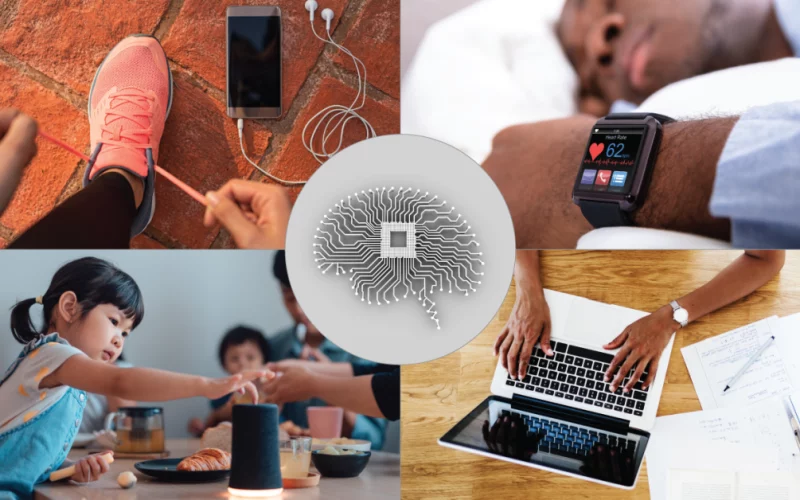Introduction
Artificial Intelligence (AI) is transforming many aspects of our lives. In 2025, it is no longer just a technology for experts; it is a part of daily routines that many people interact with regularly, often without even realizing it. From voice assistants to personalized shopping experiences, AI in everyday life helps with everything from small tasks to big decisions.
In this article, we’ll explore the most practical uses of AI in everyday life and how these innovations make our lives easier, more efficient, and even safer. Whether it’s through your smartphone, your home, or your workplace, AI is reshaping the way we interact with the world. Let’s dive into how AI can enhance your daily activities and make your life better.
What is AI and How Does it Affect Everyday Life?
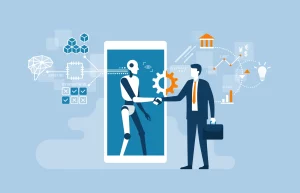
Artificial Intelligence is a technology that mimics human intelligence. It allows machines to think, learn, and make decisions similar to humans. In simple terms, AI enables machines to analyze data, learn from it, and improve over time, which makes it an essential part of modern life.
In 2025, AI in everyday life is widely used in areas like health, transportation, personal assistants, and even shopping. It saves time, enhances productivity, and helps us solve problems more efficiently. The increasing integration of AI in daily activities is making our lives more convenient and streamlined, whether we’re at home, work, or on the go.
Practical Uses of AI in Everyday Life
Let’s take a closer look at how AI is being used practically in 2025. These applications range from personal assistants to health tracking, and even saving time and money.
1. AI Personal Assistants

Virtual assistants like Siri, Alexa, and Google Assistant are the most common forms of AI in everyday life. These personal assistants can help with various tasks, such as setting reminders, sending messages, playing music, and controlling smart home devices. Over the years, these assistants have become more intelligent, learning your preferences to help you more effectively.
In 2025, AI assistants are smarter than ever. They can help schedule meetings, make restaurant reservations, or offer personalized suggestions based on your habits. As AI continues to evolve, these assistants will become even more useful in handling your daily tasks.
Tip: Make sure your AI assistant is connected to all your devices for a smoother, more efficient experience.
2. AI in Healthcare

AI is also revolutionizing healthcare, making medical services more efficient and accessible. In 2025, AI plays a big role in diagnostics, patient care, and personalized medicine. There are AI-powered apps and devices that track health metrics like heart rate, blood pressure, and sleep patterns, offering real-time insights into your health.
Moreover, AI helps in early disease detection by analyzing patterns in medical data, such as identifying signs of cancer or heart disease from scans. This technology assists doctors in making faster and more accurate diagnoses, leading to better treatment outcomes.
Tip: Use AI-driven health apps to track your fitness and monitor your well-being, and receive personalized health tips.
3. AI in Smart Homes
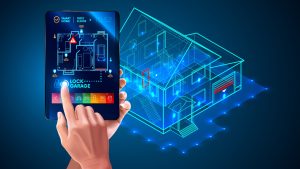
AI in smart homes is transforming the way we interact with our living spaces. In 2025, smart thermostats, lights, and appliances are powered by AI to help save energy, improve security, and automate daily tasks. For example, AI-powered thermostats like Nest learn your schedule to adjust the temperature accordingly, while smart lights can be controlled remotely or set to operate based on your habits.
Additionally, AI-driven security systems use facial recognition and motion sensors to detect unusual activity, ensuring your home is secure.
Tip: Upgrade to AI-powered home systems to improve energy efficiency and enhance home security.
4. AI in Shopping and Personalization
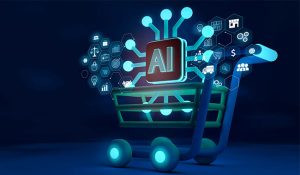
Whether shopping online or in stores, AI is changing the way we shop. Personalized recommendations based on your past purchases or browsing history have become common. Online shopping platforms like Amazon use AI algorithms to suggest products you are likely to buy, making shopping easier and more efficient.
By 2025, AI has taken personalization to the next level. It analyzes your preferences, past purchases, and social media activity to create a truly tailored shopping experience. Retailers also use AI to manage inventory, optimize pricing, and offer real-time discounts.
Tip: Turn on personalized product recommendations on your favorite shopping apps to discover new products that match your interests.
5. AI for Transportation and Navigation

AI has made a significant impact on transportation, especially when it comes to navigation. AI-powered GPS apps like Google Maps and Waze provide real-time traffic updates, suggest faster routes, and even predict future traffic conditions. These apps make driving, commuting, and traveling more efficient and less stressful.
In addition, AI in self-driving cars is advancing rapidly. By 2025, many vehicles come with semi-autonomous features like lane assist, adaptive cruise control, and automatic braking. These features make driving safer and more convenient by reducing human error.
Tip: Use AI-driven navigation apps to save time and avoid traffic during your commute or while planning trips.
6. Self-Driving Cars
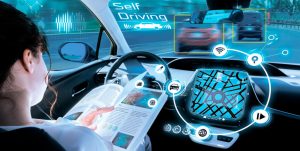
Self-driving cars are one of the most exciting advancements in AI technology. By 2025, autonomous vehicles are expected to become more mainstream, offering a safer and more efficient mode of transportation. These vehicles use AI to navigate the roads, make real-time decisions, and avoid obstacles.
The AI system in self-driving cars is designed to learn from experience, adapting to different road conditions, traffic patterns, and driving behaviors. In addition to making transportation more efficient, self-driving cars have the potential to reduce accidents caused by human error.
Why it’s practical: Autonomous vehicles can save time and improve road safety, making travel more efficient and reducing traffic accidents.
7. Customer Service and Chatbots
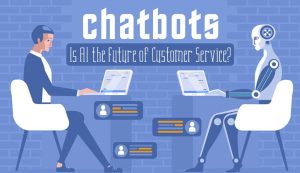
AI-driven chatbots and virtual assistants are transforming customer service across many industries. Whether you’re booking a flight, checking on your bank account, or troubleshooting an issue with a product, AI is playing a role in providing faster and more personalized customer support.
These AI chatbots are available 24/7, responding to inquiries, solving problems, and even processing transactions. In 2025, AI chatbots will continue to evolve, offering more human-like conversations and handling increasingly complex requests.
Why it’s practical: AI-powered customer service is faster and more efficient, providing quick solutions and enhancing the customer experience.
8. AI in Entertainment and Content Creation

AI is also being used to create content and enhance entertainment experiences. From AI-driven video games that adapt to your playing style to automated video editing tools, the entertainment industry is embracing AI to create more engaging and interactive experiences.
In music, AI can generate new songs based on specific genres or moods. For example, platforms like Amper Music use AI to help create royalty-free music tracks for videos, podcasts, and other media. In movies and TV shows, AI is being used to enhance visual effects, speed up editing processes, and even write scripts.
Why it’s practical: AI is revolutionizing entertainment by offering unique, personalized, and innovative content while making content creation faster and more efficient.
9. Personalized Recommendations

If you’ve ever received a product recommendation on Amazon, Netflix, or Spotify, you’ve interacted with AI. Recommendation systems are powered by AI algorithms that analyze your preferences, browsing habits, and interactions to suggest products, movies, music, and more.
In 2025, these recommendation engines are even more personalized, offering highly accurate suggestions based on your behavior and the behavior of people with similar tastes. This type of AI makes it easier to discover new things that align with your interests, from entertainment to shopping.
Why it’s practical: AI makes your life easier by suggesting things you’ll likely enjoy or need, saving you time and effort in making decisions.
Table: Practical Uses of AI in Everyday Life
| Use of AI | Benefits | Examples |
|---|---|---|
| Personal Assistants | Streamline tasks, improve productivity, provide convenience | Siri, Google Assistant, Alexa |
| Healthcare | Enhance diagnostics, track health, personalize care | Health apps, AI-powered diagnostics, wearable devices |
| Smart Homes | Improve energy efficiency, enhance security, automate daily tasks | Smart thermostats, smart lighting, AI-driven security systems |
| Shopping | Personalize shopping experience, optimize inventory | Amazon recommendations, personalized product suggestions |
| Transportation | Optimize routes, enhance safety, assist with navigation | Google Maps, Waze, semi-autonomous driving features |
Conclusion
In conclusion, AI in everyday life is already making a significant impact in 2025. From personal assistants that help us stay organized to AI-powered healthcare devices that track our well-being, AI is revolutionizing how we live. These practical uses of AI not only improve productivity and convenience but also make life safer and more enjoyable.
As AI continues to advance, it will become an even more integral part of our daily routines. By embracing AI technologies, we can save time, make smarter decisions, and live more efficiently. Whether it’s managing your home, improving your health, or navigating the world, AI is here to stay—and it’s making life better for all of us.






